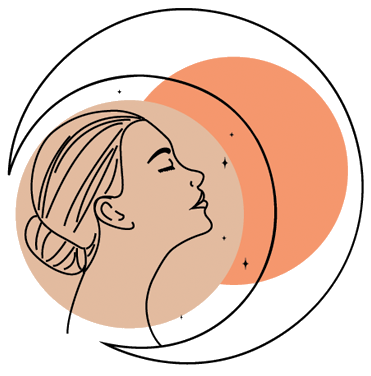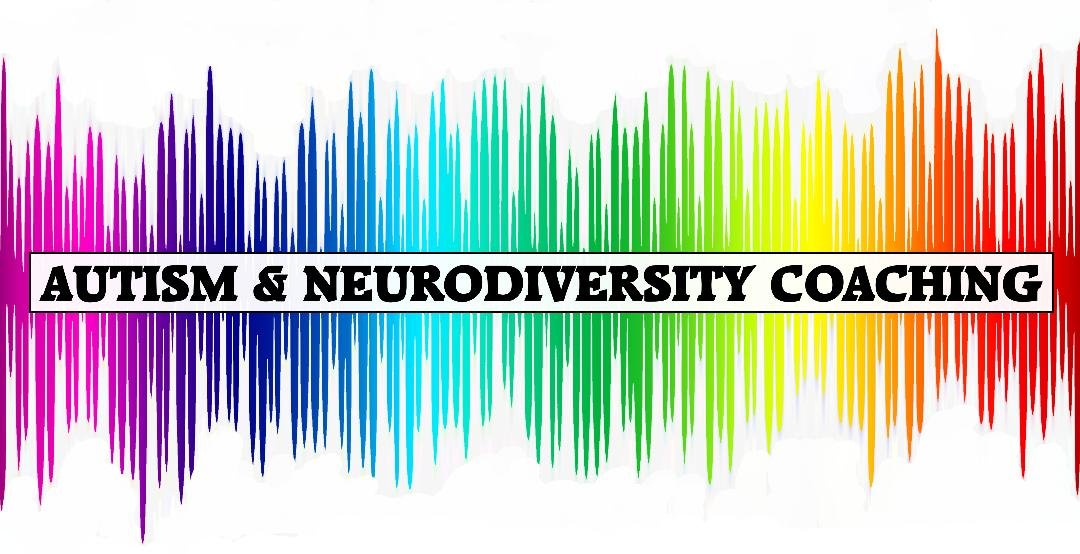Autistic individuals experience psychiatric symptoms with at least 70% experiencing one disorder, and 40% experiencing 2+
Anxiety and major depression occur more often with ADHD than the general population
It is not uncommon for autistic persons to experience anxiety, mood disorders, ADHD, and depression
Dyslexia/Dyscalculia commonly co-occurs with other mental health (e.g. anxiety, depression, & bipolar)
NAMI (National Alliance on Mental Illness)
National Suicide Prevention Lifeline – Call 800-273-TALK (8255)
If you or someone you know is in crisis—whether they are considering suicide or not—please call the toll-free Lifeline at 800-273-TALK (8255) to speak with a trained crisis counselor 24/7.
The National Suicide Prevention Lifeline connects you with a crisis center in the Lifeline network closest to your location. Your call will be answered by a trained crisis worker who will listen empathetically and without judgment. The crisis worker will work to ensure that you feel safe and help identify options and information about mental health services in your area. Your call is confidential and free.
Crisis Text Line – Text NAMI to 741-741
Connect with a trained crisis counselor to receive free, 24/7 crisis support via text message.
My Soul Balm
Welcome to My Soul Balm – where we curate mental health and wellness resources for Neurodivergent mental health patients.
We are primarily a resource and education hub with a little bit of personal experience and storytelling mixed in. Our mission is to connect Neurodivergent mental health patients to services, spaces and resources that affirm their experience and truly help them.
Start Your Journey in the Neurodivergent Mental Health Center | Explore Neurodivergent Mental Health Articles From the Blog | Explore resources in the Self Care Center
NDTherapists.com - Neurodivergent Therapists [U.S. & International]
Created by our founder, Amelia Slama, after she was diagnosed as autistic in her 20’s. At this point in her life, she was already a practicing counselor for over 5 years. She quickly realized that her experiences as an autistic person had significantly impacted how she operated as a counselor. With the therapeutic relationship being the most important factor in the therapy process, she realized that there could be a benefit to connecting neurodivergent clients with neurodivergent therapists due to their shared neurotype. This lead to the development of this directory. All therapists listed in this directory have made the decision to be open about their identities to create safe therapy spaces for other neurodivergent folks. We do not ask for proof of diagnosis from our therapists, as we accept those who are formally diagnosed and those who self-identify as neurodivergent. This is also true for clients who are seeking services with therapists listed on the directory.
Project LETS
Our Mission: We build peer-led communities of support, education & advocacy for folks with lived experience of mental illness, trauma, Disability, and/or neurodivergence. We believe that principles of Disability Justice are key components to supporting collective healing and our human rights.
Full list of help-seeking resources by Project LETS
Get Help Now!
help-seeking resources
Resources included on topics such as:
Immediate support
Attempted suicide
Supporting a friend
Finding a therapist
Building coping skills
and more…
What do LETS chapters provide?
Peer-run, student mental health organizations
Customized mental health training for teaching faculty, administration, and disability servicesEducational panels + workshops led by students with lived experience
Confidential peer counseling programs
Suicide prevention programs + training
Information during tours, orientation + campus-wide events
Student health centers + wellness centers
Student run crisis lines
Increased transparency regarding mental illness related policies
Policy reform and advocacy services
Neuroqueer.org: A place for Neurodivergent Queer people to gather
Who knew there were so many of us?! There's been an explosion of awareness about the overlap between the Neurodiverse and LGBTQ+ populations. Yet most neurodivergent support is by and from the perspective of straight, cisgender, white, Americans.
We've spent years "Queering" things to make room for ourselves, and it's time we did that with Neurodiversity.
NeuroQueer.org is an online platform community, a place to get queer-competent ADHD and/or Autism support from peers and coaches.
It's a place where we can collectively "Queer" Neurodiversity, exploring and defining ways for us to grow and thrive together.
Mindful Tradition
Mindful Traditions moves beyond the modern perception of yoga, the idea that yoga is a physical practice that only occurs on the mat. Instead, Mindful Traditions introduces participants to a practice of building a conscious relationship to self through mindfulness, meditation, breathing exercises, and movement through full-length classes tailored to meet a neuro-diverse group or individual needs.
Mindful Traditions uses the term "Neuro-Diverse" to reference anyone who wishes to embark on this journey of self-discovery. Each person has a specific set of needs regardless of perceived physical or neurological differences. Mindful Tradition seeks to explore and honor these needs by cultivating a practice that specifically helps each participant be more holistically in relationship to their sense of self and the world around them.
Mindful Tradition believes that developing this individualized practice can happen both through private consultation or through inclusive and integrated group classes that allow for the studio's collective needs to come into harmony.
Schizophrenia Spectrum Support Community
SARDAA is partnering with Inspire — an online health community — to present Inspire’s first group dedicated to schizophrenia and related brain illnesses. In the midst of these challenging, isolating times, SARDAA’s partnership with Inspire provides a free, safe, and encouraging way for you to connect with others and get support.
A Self-Help Guide Using CBT : A Self-Help Guide Using CBT
by Lee A. Wilkinson, PhD, NCSP, CPsychol, AFBPsS
This book presents strategies derived from cognitive-behavioral therapy (CBT), adapted specifically for adults with autism, to help them overcome anxiety and depression, and improve their psychological well-being. The author takes the best of CBT therapeutic techniques to facilitate greater self-understanding, self-advocacy, and better decision-making in life-span activities such as employment and interpersonal relationships. This self-help guide provides evidence-based tools that can be used to learn new ways of thinking, feeling, and doing. It includes questionnaires, forms/worksheets, and exercises to help the reader:
Evaluate his or her autistic traits and discover their cognitive style.
Identify and modify the thoughts and beliefs that underlie and maintain the cycles of anxiety, depression, and anger.
Apply therapeutic techniques such as mindfulness, positive self-talk, guided imagery, and problem solving.
Accept the past and achieve unconditional self-acceptance.
Deal effectively with perfectionism and low frustration tolerance.
Avoid procrastination and learn to maintain positive changes to their progress
Used alone or in combination with therapy, Overcoming Anxiety and Depression on the Autism Spectrum: A Self-Help Guide Using CBT is an essential self-help book for adults across the spectrum looking for ways to understand and cope with their emotional challenges and improve their psychological well-being.
BetterHelp.com © 2019 BetterHelp
Affordable, private online counseling. Talk with a licensed, professional therapist online. BetterHelp offers access to licensed, trained, experienced, and accredited psychologists (PhD / PsyD), marriage and family therapists (LMFT), clinical social workers (LCSW / LMSW), and board licensed professional counselors (LPC).
Zencare.co
Zencare is the simplest way to find your ideal therapist. Browse therapist videos and book a free phone call to find a great fit! We're on a mission to improve the therapist search process. There are numerous barriers to finding a great therapist: lack of quality assurance, outdated information, uncertainty of personality fit, and phone tag.
Zencare removes the guesswork to ensure you have a personalized, smooth, and comforting experience. Clinicians are vetted by our team so you receive the highest quality care. We're currently in these locations!
Zencare allows you to filter therapist by “specialty” including Anxiety, ADHD, ASD, etc.
Ultimate Guide to Mental Health in the Workplace
MENTAL HEALTH SERVICES IN SOUTHERN CALIFORNIA
Improving mental health in the workplace is increasingly important for a business’ success, especially during the COVID-19 pandemic. Employers and employees can work together to cultivate healthy workspaces. If you are struggling with a mental illness, there are steps you can take and treatment available to create a better life at home and in the office.
Accessing the Healing Power of the Vagus Nerve: Self-Help Exercises for Anxiety, Depression, Trauma, and Autism Paperback
December 5, 2017 | by Stanley Rosenberg
Through a series of easy self-help exercises, the book illustrates the simple ways we can regulate the vagus nerve in order to initiate deep relaxation, improve sleep, and recover from injury and trauma. Additionally, by exploring the link between a well-regulated vagus nerve and social functioning, Rosenberg’s findings and methods offer new hope that by improving social behavior it is possible to alleviate some of the symptoms at the core of many cases of autism spectrum disorders. Useful for psychotherapists, doctors, bodyworkers, and caregivers, as well as anyone who experiences the symptoms of chronic stress and depression, this book shows how we can optimize autonomic functioning in ourselves and others, and bring the body into the state of safety that activates its innate capacity to heal.
6 Self-Care Tips for People on the Autism Spectrum | by Tahlia v.
© 2019 Mighty Proud Media, Inc. All Rights Reserved.
The Mighty is a digital health community created to empower and connect people facing health challenges and disabilities.
Autism and Neurodiversity Coaching [UK]
Ben Holmes provides coaching and training sessions that are completely tailored to the individual or organisation. Individual services include coaching for autistic and neurodiverse individuals and life coaching.














